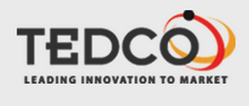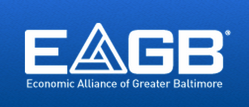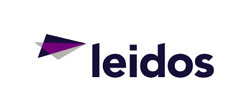
Novavax, Inc. (Nasdaq:NVAX), a clinical-stage vaccine company focused on the discovery, development and commercialization of recombinant nanoparticle vaccines and adjuvants, today announced that it intends to offer, subject to market and other conditions, $200 million aggregate principal amount of convertible senior unsecured notes that will mature on February 1, 2023 (the Notes). The Notes will be offered and sold only to qualified institutional buyers pursuant to Rule 144A under the Securities Act of 1933, as amended. Novavax also expects to grant the initial purchasers of the Notes an option to purchase up to an additional $30 million aggregate principal amount of the Notes, solely to cover over-allotments.

The UM BioPark-based PathSensors, Inc. has been awarded a new firm fixed price contract through the U.S. Department of Homeland Security for the design and development of a CANARY® detection system for biosecurity. The focus of phase I of this research contract will be on the development of biosensors for Abrin and Ebola. The research supported by this contract will further enhance the robustness of the CANARY® technology opening up a broad range of deployment opportunities for quick and accurate detection of harmful pathogens.

ImmunoCellular (NYSEMKT:IMUC), a clinical-stage biotechnology company, has entered into a research collaboration agreement with the University of Maryland, Baltimore, focusing on immunotherapies for cancer. The company said the agreement includes three projects, which together have the potential to improve the efficacy of dendritic cell, T-cell, and combination immunotherapies for cancer and lead to enhancements to both of ImmunoCellular’s dendritic cell and Stem-to-T-cell platforms. IMUC fell to $0.24 at closing on Tuesday, at the bottom of 52-week range $0.21 – $0.73.

Available lab space in Montgomery County's I-270 corridor has dropped to levels not seen since before the Great Recession struck in 2008, according to the latest update from Rockville-based commercial real estate group Scheer Partners.
That's after a remarkably active year for biotechs in 2015, said Matt Brady, a Scheer vice president who specializes in office, research and development, and industrial leasing. "People grabbed up a lot of space in a really short amount of time. That's the story here," Brady said.

Since the World Health Organization started raising alarms about the mosquito-born Zika virus spreading throughout the Americas, deep-pocketed pharmaceutical companies have been racing to find a vaccine.
But a seven-person biotech company based in Rockville, Md., is trying something different.

The president and executive director of Maryland Technology Development Corp. (TEDCO) has resigned and the agency’s chief operating officer has been promoted to president. TEDCO announced Thursday that Robert Rosenbaum, who has served as the quasi-government agency’s leader for the past five years, would step down effective immediately to “pursue other interests.”

For more evidence that tech is moving into the mainstream economic conversation for Baltimore, look no further than the Economic Alliance of Greater Baltimore’s annual report. The 2015 edition was published earlier this month.

Dubbed the Apollo Therapeutics, the new fund will see the three pharma companies work with Imperial College London, University College London and the University of Cambridge. Together they aim to "significantly improving the speed and potential of university research being translated into novel medicines".

Leidos Holdings Inc. (NYSE: LDOS) CEO Roger Krone describes his company’s new agreement to combine with Lockheed Martin Corp.’s (NYSE: LMT) Information Systems & Global Solutions business as a landmark moment for the government services space. "I am convinced that this transaction is the kind of event that is often sought after but rarely found,” Krone said in a conference call Tuesday after the $5 billion deal was announced.

Alexandria is the largest and leading urban office REIT uniquely focused on collaborative science and technology campuses in AAA innovation cluster locations. The firm currently has more than 19 million rentable square feet of operating properties, as well as development and redevelopment projects under construction, with another 11.6 million square feet in near-term and future ground-up development projects. Alexandria was the first to pioneer this niche under CEO Joel Marcus' vision when he founded the company in 1994. Since then, the firm has established a dominant market presence across the industry in locations such as Greater Boston/Cambridge, San Francisco, New York City, San Diego, Seattle, Maryland and Research Triangle Park.

The Food and Drug Administration aims to ensure hackers can’t remotely access or control medical devices, and it’s asking the private sector to do more to protect those devices.
Earlier this month, FDA issued draft guidance directing manufacturers to conduct “postmarket” evaluation of their devices, ensuring device security vulnerabilities won’t affect clinical performance.

While fourth-quarter venture capital funding slid in most industries amid fears of an economic slowdown, biotechnology investment sprinted ahead. The question is how long the run can last.
Total U.S. venture funding reached $72.30 billion in 2015, its highest level since 2000, despite fourth-quarter investment declines in consumer services, information technology, and other markets, according to industry tracker Dow Jones VentureSource.

Tarveda Therapeutics, Inc., formerly Blend Therapeutics, today announced that it has secured $38 million in Series C financing co-led by new investor Novo A/S and existing investor New Enterprise Associates (NEA). The company also announced the change of its corporate brand to clearly highlight the company’s differentiated approach to treating cancer.

The 2016 Nominating Committee is pleased to announce the opening of the nomination period for FLC positions!
This year the FLC will elect five national positions: Finance Officer, Recording Secretary, and three Members-at-Large; as well as Regional Coordinators and Deputy Regional Coordinators for the Midwest, Far West, and Mid-Atlantic regions.
If you are a Consortium Representative or Consortium Participant, you are welcomed and encouraged to nominate yourself or someone else. The nomination period will run from Wednesday, January 27 through Friday, February 26, 2016.

Hospitals and health systems are clinging tenaciously to the belief that their economic survival depends on their embracing continuous quality improvement and Lean methods. After all, in a time of ratcheted-down reimbursement, the need for a little belt-tightening and quality improvement seems obvious.

The 100 Rising Stars in this, the inaugural Global Corporate Venturing awards, represent the top 1% of the industry.
Global Corporate Venturing (GCV) selected these stars as representing the brightest prospects, and those who have already been changing the industry. The selection process involved researching more than 10,000 industry professionals across more than 1,000 corporate venturing units to identify these stars. GCV was looking for those below the top rank of the venturing hierarchy in long-established units, based on their deals, career development so far, being an heir apparent and being the glue in the unit.

Wednesday, February 17, 2016 - National Press Club 529 14th St. NW, 13th Floor Washington, D.C.
Kauffman Foundation President and CEO, Wendy Guillies, will present the 2016 State of Entrepreneurship Address highlighting an actionable policy agenda for renewing economic growth. “America’s New Entrepreneurial Growth Agenda” will present recommendations culled from some of the nation’s foremost thinkers on how to foster dynamism, entrepreneurship, and economic opportunity.
Following the address, a panel of contributors will present recommendations from “America’s New Entrepreneurial Growth Agenda,” and policy leaders will share their own insights.

Partners HealthCare is expanding its Innovation Fund from $35 million to $100 million, the Massachusetts health system announced today at the J.P. Morgan Healthcare Conference.
The fund, which was launched as an experiment in 2007 with funding from Brigham & Women’s Hospital and Massachusetts General Hospital, provides startup capital to early stage life sciences companies. To date, it has funded 25 companies. This second fund, at $100 million, is geared in particular towards therapeutics startups – with aims to provide early seed investments.

Texas Medical Center added a second class of startups to its accelerator program and acknowledged that it has tweaked its approach.Although the second group will focus on digital health, the next cohort starting in July will be devoted to medical device innovation.